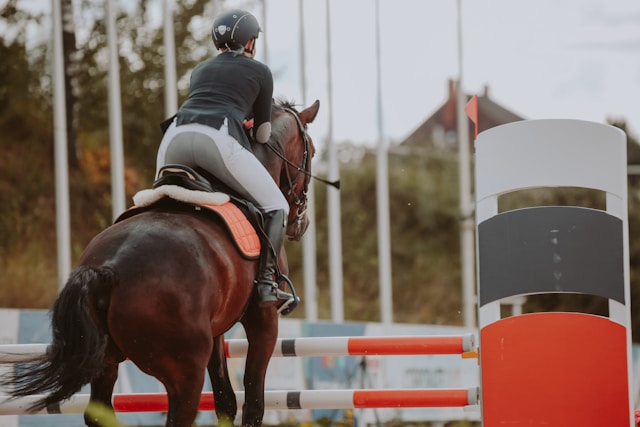 People who want to be jockeys get a lot of training. This is far more than just riding a horse. They must acquire the art of riding in different ways. They also get in the best shape imaginable. Jockeys learn how to think strategically so they can make quick judgments when the pressure is on. Success is never a fluke. It is the result of many hours of work on every part of the craft. Anyone who aspires to be a top jockey or is simply interested in the amount of work it takes to become one should learn some basic things about how professional jockeys train. It demonstrates the considerable effort that goes into each triumph.
People who want to be jockeys get a lot of training. This is far more than just riding a horse. They must acquire the art of riding in different ways. They also get in the best shape imaginable. Jockeys learn how to think strategically so they can make quick judgments when the pressure is on. Success is never a fluke. It is the result of many hours of work on every part of the craft. Anyone who aspires to be a top jockey or is simply interested in the amount of work it takes to become one should learn some basic things about how professional jockeys train. It demonstrates the considerable effort that goes into each triumph.
Mastering the Mount: Important Skills for Riding Development
A good jockey knows how to ride a horse well. This implies more than just sticking on. It takes getting a feel for and exact control over a strong, live athlete. Mastering the fundamentals of horsemanship is the initial stage of training. People who ride learn how to handle horses on the ground. They know how to build trust and how horses act. It is essential to develop “hands.” This is the capacity to communicate with the horse’s mouth through the reins in a subtle way. It helps the animal without causing it harm. Riders try different ways of walking. They go up and down gallops. Like in a race, they navigate around tight turns. Riders adjust their riding style according to how each animal behaves and their preferred riding style. This practice will help them do things.
Making Smart Choices on the Track
Basic riding abilities and being in good shape are necessary, but making smart decisions on the track is what frequently makes the difference between winning and losing. A race is like a game of chess at great speed. The strategic decisions made on the track are mirrored by those who carefully study the form and place their wagers on platforms like Betway, where every well-considered bet is a move in itself. The outcome depends on choices made in a split second. Before a race, jockeys carefully go over the form. Jockeys can handle the complex world of racing more effectively if they plan and execute their plans flawlessly. It leads their mount to triumph.
Getting in Shape Physically and Mentally
To be a jockey, you need to be strong both physically and mentally. There are numerous types of physical training programs. Leg strength is built up for driving ends. Having a strong upper body helps jockeys maintain control and balance. Jockeys do a lot of hard work on their hearts and lungs. This is particularly important for riders who ride multiple times a day and for maintaining effort in a tough finish. Diet and weight control are essential and closely watched. This often requires a great deal of self-control. Jocks also have to contend with the physical effects of falls and accidents regularly. Jockeys need to be smart and strong, this all-around approach to health, encompassing both emotional and physical aspects, is essential.
Analyzing and Adapting After the Race
Post-race analysis is an integral and essential part of continually improving. Jockeys oversee race replays. They do this by themselves or with their coach most of the time. They scrutinize every decision that is made. They examine how the track conditions have changed. They think about how other people rode their horses. This means improving at a specific riding style. It might involve changing how they prepare their tactics before the race. Elite performers are those who can swiftly analyze race data and use it to improve their future rides. This constant cycle of doing, thinking, and changing things makes a jockey’s instincts sharper. It sharpens their tactical sense.